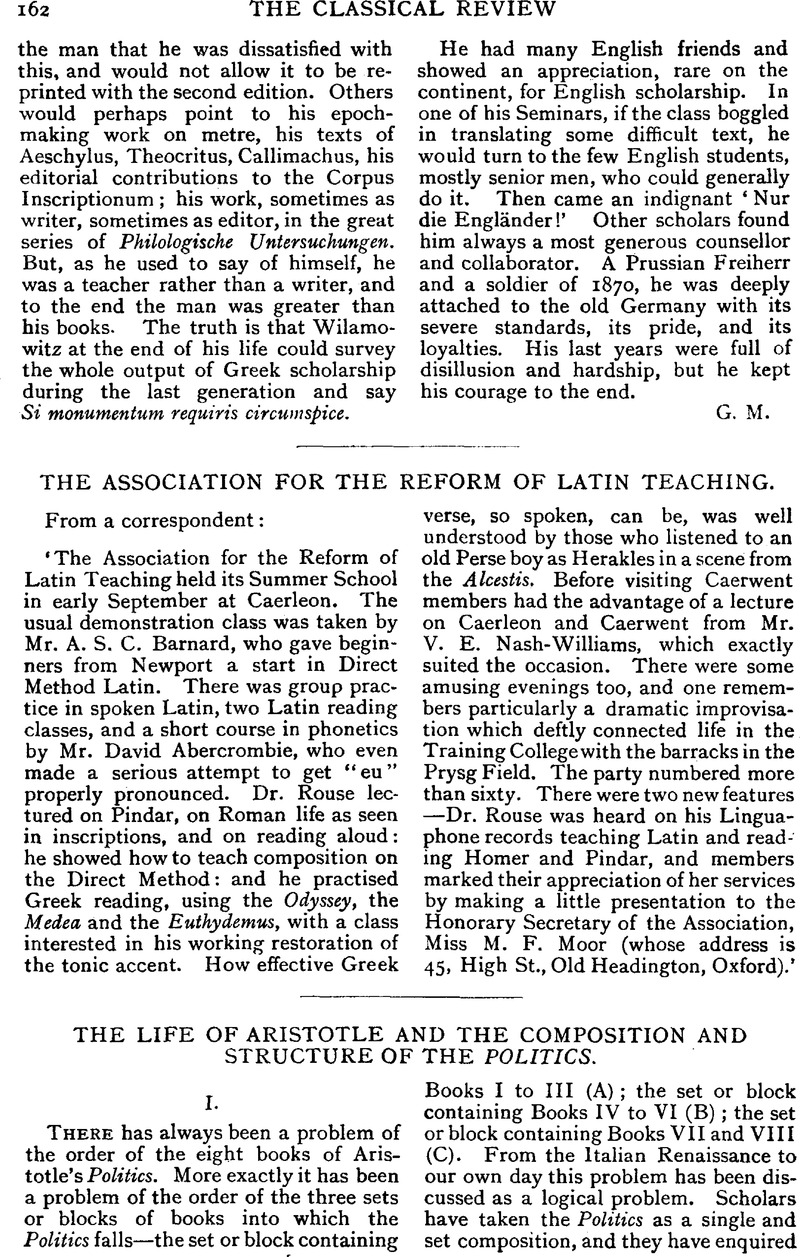Article contents
The Life of Aristotle and the Composition and Structure of the Politics
Published online by Cambridge University Press: 27 October 2009
Abstract

- Type
- Review Article
- Information
- Copyright
- Copyright © The Classical Association 1931
References
page 163 note 1 I am assuming the existence of a general, if loose, unity in Books I–III.
page 164 note 1 Attention was drawn to this fact in the writer's Greek Political Theory (1918), pp. 380–381.
page 164 note 2 At the same time it is to be noted that, in the eleventh chapter, Aristotle finds room, in an aporetic manner, for the principle of popular government.
page 165 note 1 Parts of the Laws, or even the whole, may have been circulated, in some form, at an earlier date.
page 169 note 1 Jaeger, W., Aristoteles, p. 302.Google Scholar
page 170 note 1 Op. cit. Introduction, p. xxii.
page 172 note 1 It may be of service to the reader if the following list of books and articles dealing with the composition and structure of the Politics is appended. Jaeger, W., Aristoteles (1923)Google Scholar: Part I, c. i and especially c. iv on the Protrepticus; Part II, c. i and especially c. vi on Urpolitik; Part III, c. i and c. ii. Jaeger, W., Aristotle's Politics (Hibbert Journal, January, 1927)Google Scholar. von Arnim, H., Zur Entstehungsgeschichte der Aristotelischen Politik (1924Google Scholar — a paper originally communicated to the Vienna Academy of Sciences, October, 1923). Stocks, J. L., The Composition of Aristotle's Politics (Classical Quarterly, 1927, Vol XXI, pp. 177–187)Google Scholar. The writer would draw particular attention to Professor Stocks' paper, which proceeds by a different method — that of detailed textual criticism.
- 1
- Cited by


